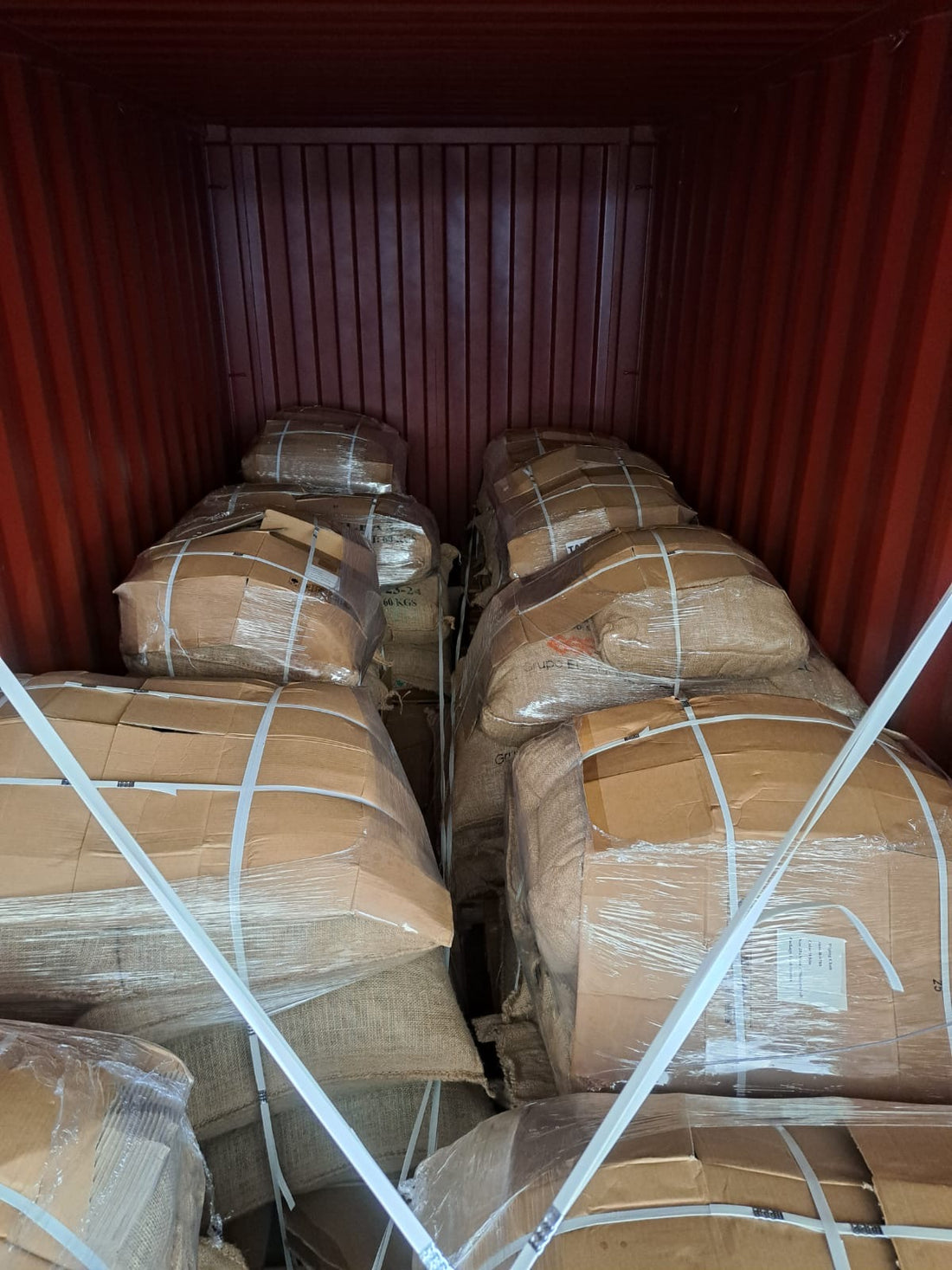
Unexpected Challenges in Exporting from Central America to Europe: Navigating Bureaucracy and Logistics
(Italian version below)
Unexpected Hurdles in Exporting from Central America to Europe: Navigating Bureaucracy and Logistics
As a small business dedicated to the renaissance of fine-flavored specialty cocoa in El Salvador, we pride ourselves on embracing resilience and flexibility. However, our recent import to replenish our inventory for Christmas 2023/winter 2024 presented unexpected challenges in the export-import process, extending the typical two-month timeframe to a daunting four months.
Our commitment to supporting local farming partners requires our active involvement in the export process, as many are not equipped for export procedures. Operating locally in El Salvador enables us to integrate our supply chain efficiently. The rarity of these cocoas adds another layer of complexity, compelling us to handle the export directly to ensure their availability.
Here's an overview of our recent export-import experience:
In October, we placed purchase orders for the new cocoa harvest, anticipating a mid-November shipment. However, unforeseen roadblocks and political turmoil in Guatemala (we use the route from the Atlantic coast) forced us to change routes to the Pacific Coast of El Salvador, causing delays and missing the initial departure schedule. A tropical storm further hindered our progress, resulting in a month-long delay in the arrival of our container in Sardinia.
Upon arrival, bureaucratic hurdles and misinterpretation of European legislation added to our challenges. Sanitary authorities conducted inspections for Cadmium, pesticides, and contaminants, disrupting carefully packed pallets and sacks, leading to delays until lab tests were completed. This process took approximately a month until the cocoa received the “green light” to sell our products made from these harvest within the EU. If all of this wasn't enough, this import was also selected for administrative anti fraud inspection and drug controls.
Although EU legislation does not regulate Cadmium in cocoa beans, only in finished products such as chocolate and cocoa powders, we were confident that the Salvadoran cocoas we handle were very low in cadmium, with no pesticides or contaminants as we regularly run tests ourselves.
Despite these challenges, our commitment to quality remains unwavering. Our cocoa undergoes rigorous testing for hygiene and food safety, adhering to sustainable organic practices. We look forward to a smoother import process in the future, ensuring our customers receive our fine cocoa products without unnecessary delays.
#DirectTrade #directtrade #shortsupplychain


(Italian)
Unexpected Challenges in Exporting from Central America to Europe: Navigating Bureaucracy and Logistics
As a small company dedicated to the revival of high-quality cocoa from El Salvador, it is important to develop resilience and flexibility to make things happen. A recent import to replenish our Christmas 2023/Winter 2024 inventory revealed unexpected challenges in the export-import process, extending the typical two-month period to a daunting four-month span.
Our commitment to supporting local agricultural partners in El Salvador requires our active participation in the export process, where a company in our name comes into play that acts as an “exporting company”, since there are conditions in the Salvadoran state that do not facilitate the exports of individual agricultural companies without incurring additional costs and bureaucratic challenges, and also for a simplification then in front of customs operations both when leaving ES and when entering Italy.
Operating locally (El Salvador) allows us to effectively integrate our cocoa supply chain, offering flexibility and purchasing at the prices that individual cacaoterxs offer us, as it should be.
But now we'll tell you more.
In October, we placed a purchase order for the new cocoa crop, expecting a mid-November shipment from El Salvador via Guatemala, which has access to the Atlantic Ocean. However, unforeseen obstacles and political protests that swept the globe in Guatemala in October forced us to change our route, forcing us to use the Pacific port on the Salvadoran coast instead of the Atlantic port in Guatemala. A tropical storm that unfortunately impacted El Salvador further hampered our route, causing a month-long delay in our container arriving in Sardinia, as all maritime connections were missed.
Upon arrival in Sardinia, bureaucratic obstacles and misinterpretations of European legislation added to the many adversities, with further delays. The shipping company kept the container in an Italian port for 3 weeks before finally shipping it to Sardinia. Here, health authorities performed an inspection for heavy metals such as cadmium, pesticides and contaminants on all cocoa such as Benzo-a-pyrene and Benzo-a-anthracene, hydrocarbon contaminants that can deposit in artificially dried cocoa or near busy roads .
Authorities then opened half of the carefully packaged bags and imposed a delay in sales until laboratory tests could be completed, a process that took nearly a month because the Christmas holidays were in the way.
However, we want to clarify that EU legislation does not regulate Cadmium in cocoa beans, but on products such as chocolate and cocoa powder. Not to mention that it is good to do tests on individual plantations, but we understand that at import they only do a comprehensive check.
Despite all these challenges (and we are not telling you everything, because there is also an additional customs control in the middle), our commitment to quality remains firm, just as we did not doubt for a second about the positive outcome of the tests, because we know these cocoas very well, which are grown organically, in agroforestry systems managed by people with great experience and agricultural skills, who do their job very well. We are therefore happy for El Salvador and for these plantations, such as Finca Cuyancùa, Finca Parras Lempa, Hacienda SJ. La Carrera and Finca S.Fernando.
In conclusion, the cocoas we import from El Salvador have passed the test with flying colors. No traces of pesticides or hydrocarbon contaminants were found and the cadmium was > 0.1 mg/kg (the threshold is 0.8 mg/KG). We only hope for a smoother import process in the future, ensuring that our customers receive our fine cocoa products without all these delays.
#directtrade #shortchain #beantobaritalia
